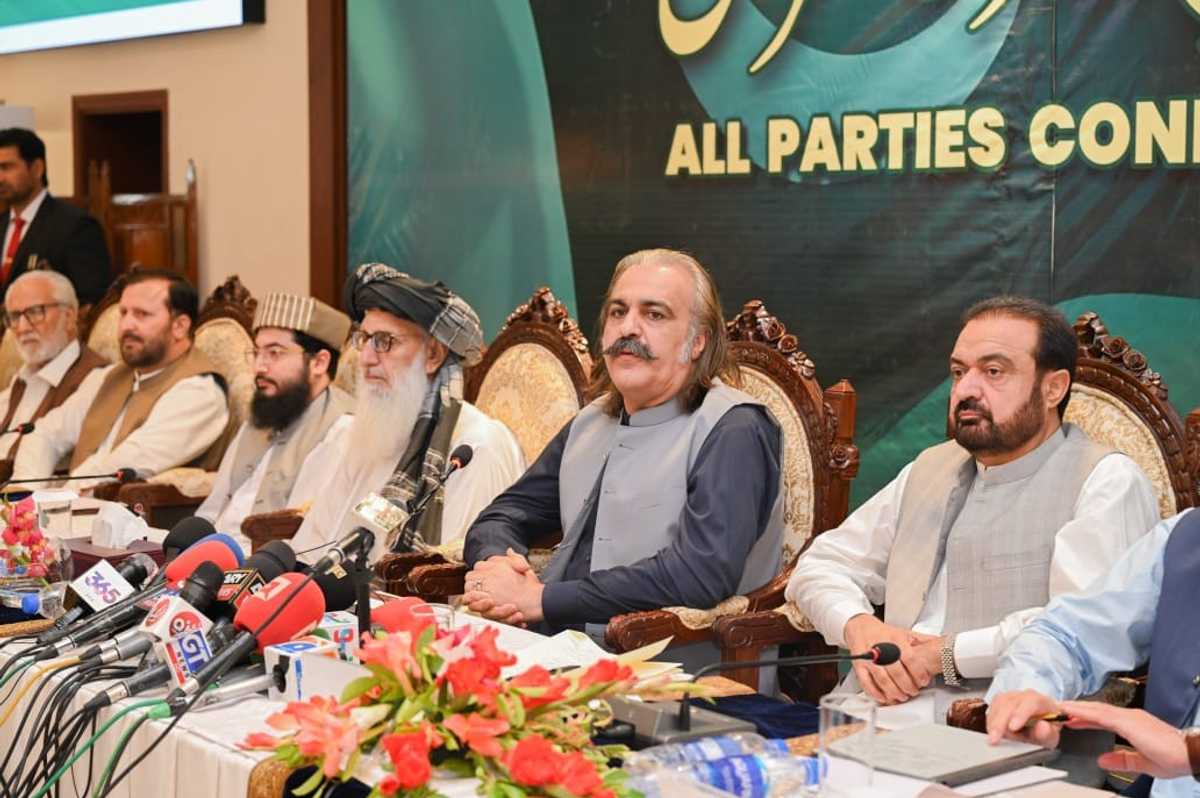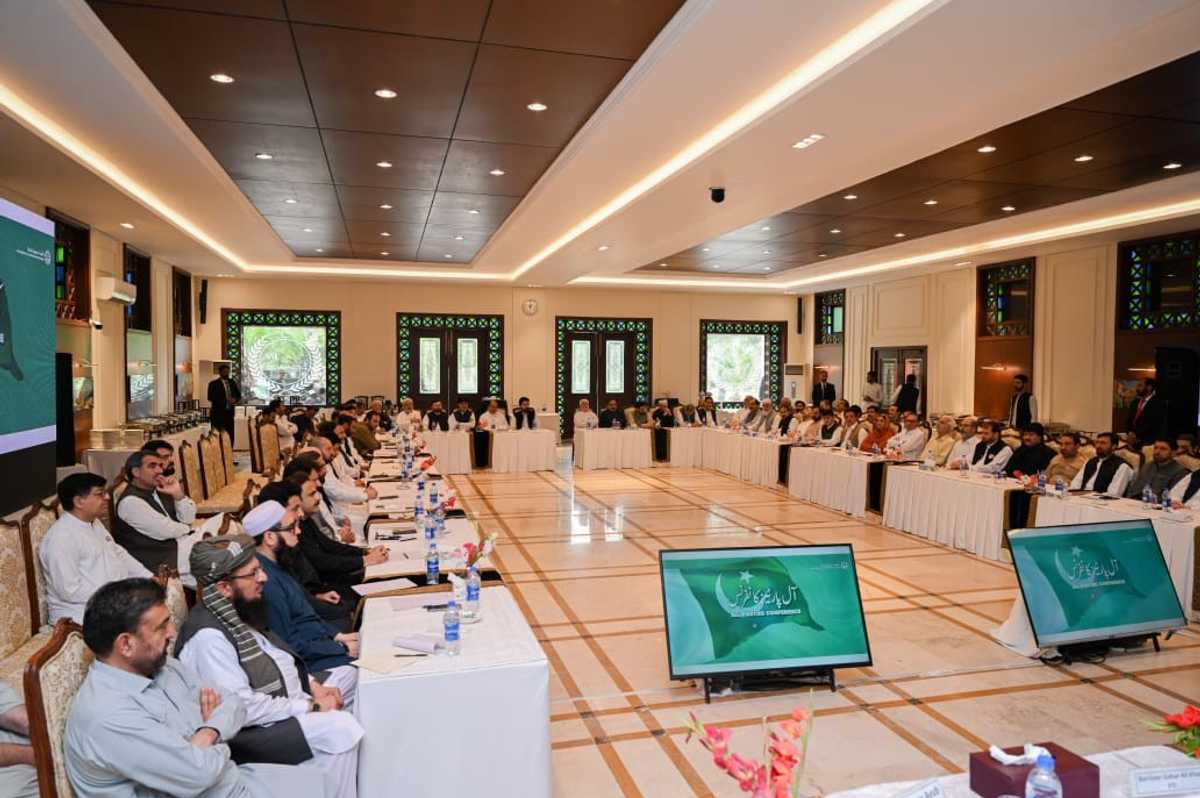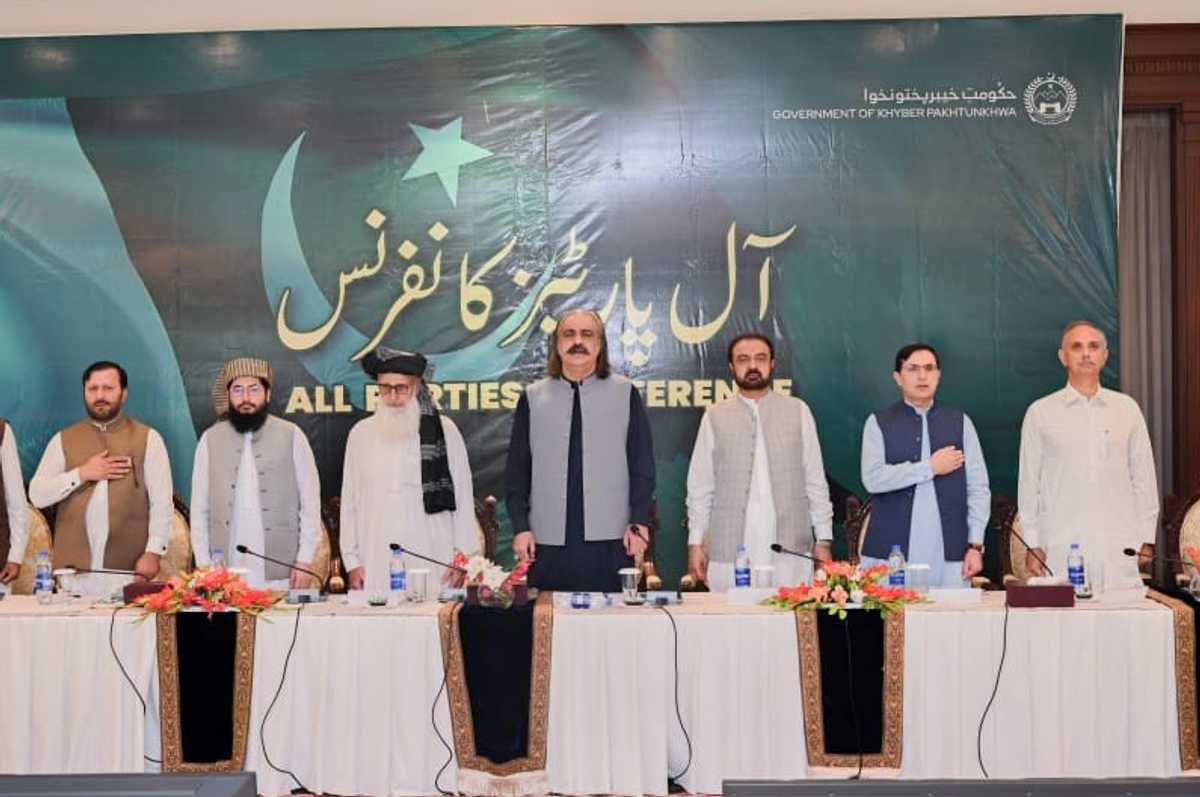Political leaders in Pakistan’s KP unite in opposition to potential military operation
'APC' called by KP chief minister sought coordinated efforts and intelligence-based actions over large-scale operations to restore peace

Kamran Ali
Correspondent Nukta
Kamran Ali, a seasoned journalist from Khyber Pakhtunkhwa, Pakistan, has a decade of experience covering terrorism, human rights, politics, economy, climate change, culture, and sports. With an MS in Media Studies, he has worked across print, radio, TV, and digital media, producing investigative reports and co-hosting shows that highlight critical issues.

KP Chief Minister Ali Amin Gandapur chairs an 'All-Parties Conference' in Peshawar on Thursday.
Nukta
In a rare show of unity, political parties across the spectrum in Pakistan’s northwestern Khyber Pakhtunkhwa (KP) province have come together to unanimously reject any future military operations, voicing concern over civilian casualties and demanding a shift toward intelligence-based, localized counterterrorism efforts.
The consensus emerged at an "All-Parties Conference" (APC) called on Thursday by KP Chief Minister Ali Amin Gandapur. The meeting was attended by members of the provincial cabinet, lawmakers, and representatives from parties including Jamaat-e-Islami, Jamiat Ulema-e-Islam (Samiul Haq faction), Pakistan Muslim League-Nawaz (PML-N), Pakistan Tehreek-e-Insaf (PTI), and Qaumi Watan Party.
The call comes amid growing speculation of a potential military response following a recent surge in suicide bombings and militant activity near the Afghan border.
Held behind closed doors, the in-camera session featured briefings on the province’s security landscape and the KP government’s ongoing peace efforts. The conference concluded with a joint call for immediate and coordinated efforts to restore lasting peace, emphasizing targeted operations based on credible intelligence over conventional large-scale military campaigns.
Participants collectively reaffirmed their commitment to eradicating militancy and fostering stability, declaring peace essential for sustainable development and economic progress. They also stressed the need for district-level cooperation between political parties, public representatives, local administrations, and security agencies to strengthen counterterrorism efforts.

Chief Minister Gandapur delivered a scathing critique of past military interventions, saying, “Operations have not yielded the desired results — instead, they have brought more destruction. From now on, we will not allow any form of military operation in the province.”
He also condemned drone strikes, saying such tactics disproportionately harm civilians. “Drone attacks are harming innocent citizens. We won’t allow drone operations either,” he added.
In a rare public rebuke of the security establishment, Gandapur accused state institutions of supporting so-called “good Taliban.” He demanded an immediate end to this policy, calling for their expulsion from KP: “Our institutions are backing good Taliban. This has to end — we can no longer tolerate this policy.”
In what appeared to be a veiled response to Gandapur’s remarks, Interior Minister Mohsin Naqvi posted a cryptic message on X: “How much money does a key provincial official give to the Taliban each month in Dera Ismail Khan?” Those familiar with the matter suggested the post was likely aimed at the KP chief minister’s accusations regarding state-backed militants.
Gandapur further asserted that border security is the federal government’s constitutional duty, but warned that if Islamabad failed to act, the province would take matters into its own hands. “If the federal government fails to secure the borders, we will do it ourselves through our provincial police force,” he said.
He emphasized that no federal agency would be allowed to conduct operations within KP without provincial approval. “Islamabad must take the provincial government into confidence before initiating any action in the region,” he declared.

Despite this show of unity, some major parties chose to boycott the APC. The Pakistan People’s Party (PPP), Awami National Party (ANP), and Jamiat Ulema-e-Islam-Fazal (JUI-F) declined to participate.
Aimal Wali Khan, central president of the ANP, accused the provincial government of staging a “political drama,” alleging that key decisions -- including a planned military operation in Khyber district -- had already been made prior to the meeting. “This APC is merely aimed at rubber-stamping pre-decided actions under the guise of consensus,” he said.
Muhammad Ali Shah Bacha, PPP’s KP president, echoed similar sentiments, saying that the APC lacked sincerity. “If the government were serious, the province’s security issues would have been resolved long ago,” he said. He added that past dialogue efforts led by the KP government had failed to produce meaningful results.







Comments
See what people are discussing